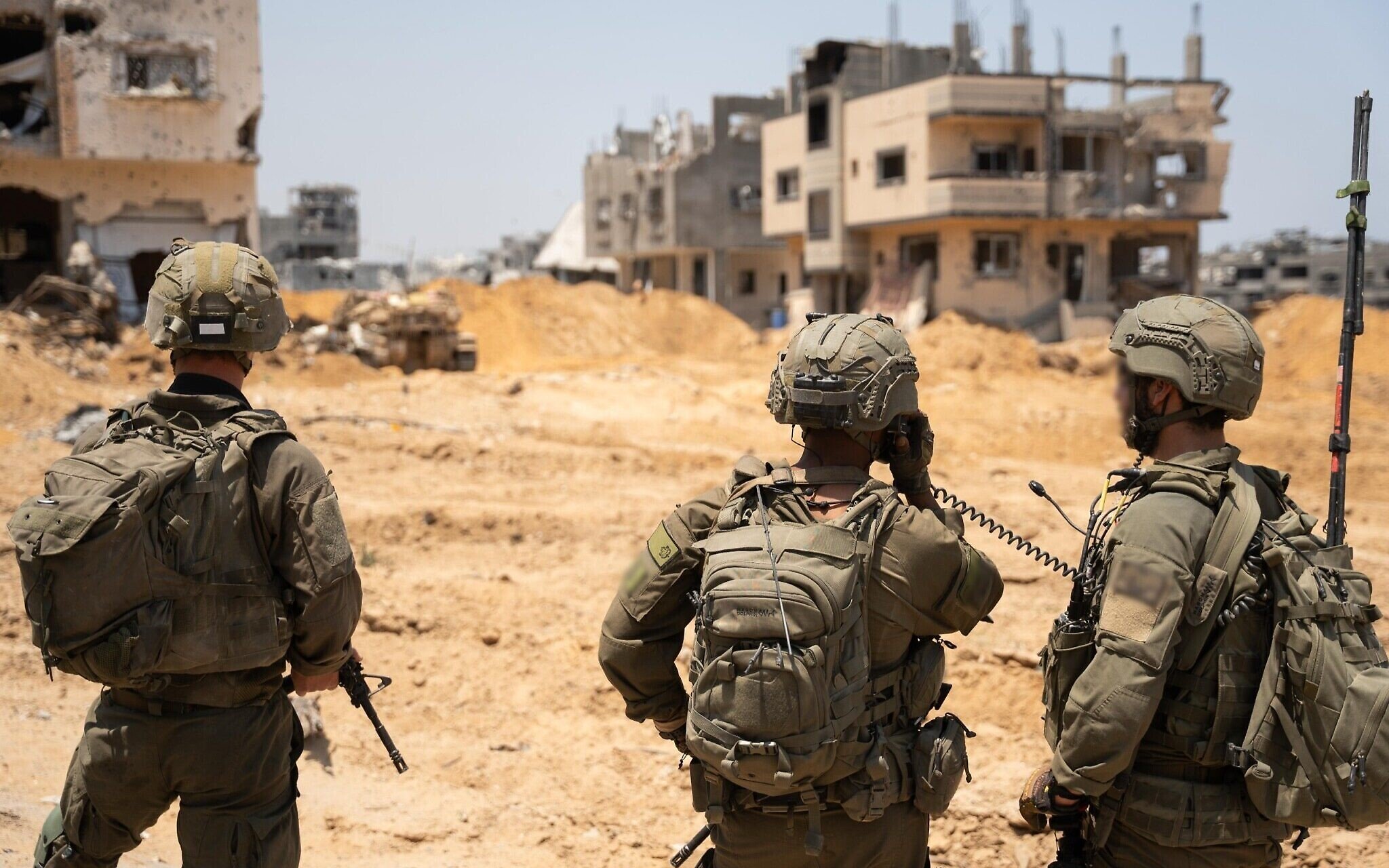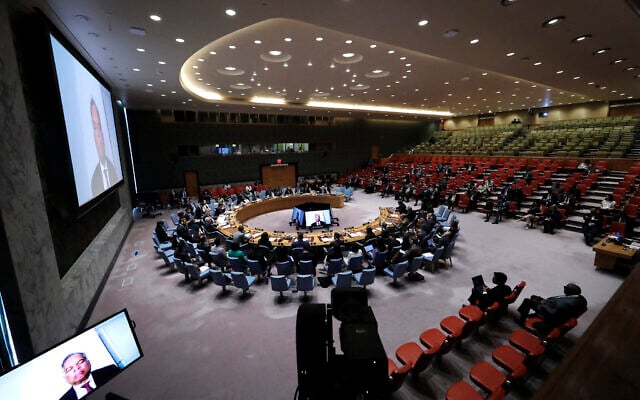



The IDF may take at least another week to gauge how many troops it will need for the government-ordered renewed offensive in Gaza City, military officials said Sunday, as envoys at an emergency UN Security Council session warned the planned operation would risk further calamity in the Strip.
The rare weekend meeting of the Security Council came as at least 11 Palestinians died in Gaza as a result of starvation and Israeli strikes on Sunday, according to medics and the Strip’s Hamas-run health ministry.
Meanwhile, two rockets launched from Gaza City’s Shejaiya neighborhood hit open areas near Kibbutz Sa’ad in southern Israel Sunday afternoon, causing no injuries, the IDF said, adding that interception attempts were unsuccessful.
An hour later that Israeli Air Force jets bombed the rockets’ launching position, according to the military.
The cabinet overnight Thursday-Friday approved plans to take over Gaza City, Prime Minister Benjamin Netanyahu confirmed Friday, in what appeared to be a watered-down version of his stated intent to conquer the entire Strip. Netanyahu also said Sunday that Israel will not permanently occupy Gaza City under the plan, and will seek to delegate civilian authority to a third party.
The decision passed despite reported warnings by IDF Chief of Staff Lt. Gen. Eyal Zamir that taking over Gaza City, where nearly half the Strip’s population currently resides, would endanger the hostages in the enclave and deepen the humanitarian crisis there.
Military officials said Sunday that it may take at least another week to complete the general outline of the plans for the new offensive.
Once the outline is ready, the IDF will know how many troops will be required and for how long, the officials said, adding that reservists will in any case need to be drafted — for either the offensive, or swapping out standing forces in other fronts, or both.
To date, the highest number of reservists ever called up remains at some 287,000 — the number drafted after the shock October 7, 2023, assault.
The UN Security Council held an extraordinary session Sunday to discuss Israel’s Gaza City takeover plans.
“If these plans are implemented, they will likely trigger another calamity in Gaza, reverberating across the region and causing further forced displacement, killings, and destruction,” UN Assistant Secretary Miroslav Jenca told the UNSC.
Slovenia’s ambassador to the UN Samuel Zbogar, speaking on behalf of the five European members of the Security Council ahead of the meeting, said: “This decision by the Israeli government will do nothing to secure the return of the hostages and risks further endangering their lives.”
“It will also worsen the already catastrophic humanitarian situation in Gaza and risks further death and mass displacement of Palestinian civilians,” said Zbogar.
Meanwhile, Italian Foreign Minister Antonio Tajani said in an interview Sunday that expanded operations in Gaza could drag Israel into a morass like the one that befell the US in Vietnam.
“The invasion of Gaza risks turning into a Vietnam for Israeli soldiers,” Tajani told Italian daily Il Messaggero.
Gaza medics said the IDF fire killed at least six Palestinians on Sunday, four of them in an airstrike in Khan Younis and two more people among crowds seeking aid in central Gaza. The Israeli military did not immediately comment on the report.
Five more people, including two children, died of malnutrition and starvation in Gaza in the past 24 hours, bringing the number of malnutrition-related deaths during the war to 217, including 100 children, according to the Strip’s Hamas-run health ministry.
Gaza medics also said Saturday that a 14-year-old boy was killed by an aid airdrop that fell on a tent encampment in central Gaza. A video, verified by Reuters, that went viral on social media, showed the parachuted aid box falling on the teenager who, among many other desperate Palestinians, was awaiting food.
The Hamas media office said that the latest death raised the number of people killed by aid airdrops during the war to 23.
“We have repeatedly warned of the dangers of these inhumane methods and have consistently called for the safe and sufficient delivery of aid through land crossings, especially food, infant formula, medicines, and medical supplies,” it said.
In addition to the danger they pose to civilians who can be hit from above, the airdrops have been criticized by aid groups because they can deliver only a small fraction of the aid that can enter via land.
Israel renewed the airdrops recently as part of a new policy to surge the flow of aid into Gaza amid mounting international anger over the hunger crisis there.
On Sunday, aircraft from the United Arab Emirates, Jordan, Germany, Belgium, France, the Netherlands, and Italy, airdropped 131 pallets of humanitarian aid in the Gaza Strip, the IDF said. Each pallet contains around one ton of food.
Since July 26, when Israel adopted its new aid policy, over 1,100 humanitarian aid packages have been airdropped in the Gaza Strip by 12 countries, including Israel, according to the military. The packages the IDF airdropped were supplied by international aid groups.
Also on Sunday, the Defense Ministry body that coordinates government action in Gaza and the West Bank said close to 1,900 truckloads of aid “were collected and distributed” in the past week from the Gazan side of the Kerem Shalom and Zikim Crossings.
Meanwhile, more than 1,310 trucks of aid, mostly carrying food, crossed into Gaza this week, COGAT said, adding: “We will continue facilitating humanitarian aid into Gaza for the civilian population — not Hamas.”
The difference between the two numbers appeared to be the result of some aid that was previously transferred into Gaza having only been distributed this week.
The UN estimates that between 500 and 600 truckloads of aid a day are needed to meet the needs of Gaza’s more than two million inhabitants. Many deliveries are looted by armed Gazans.
Israel has accused Hamas of hijacking aid deliveries, and also accused UN and other aid agencies of failing to pick up aid delivered into Gaza. The agencies, for their part, have said Israel failed to provide safe passage for the aid deliveries.


